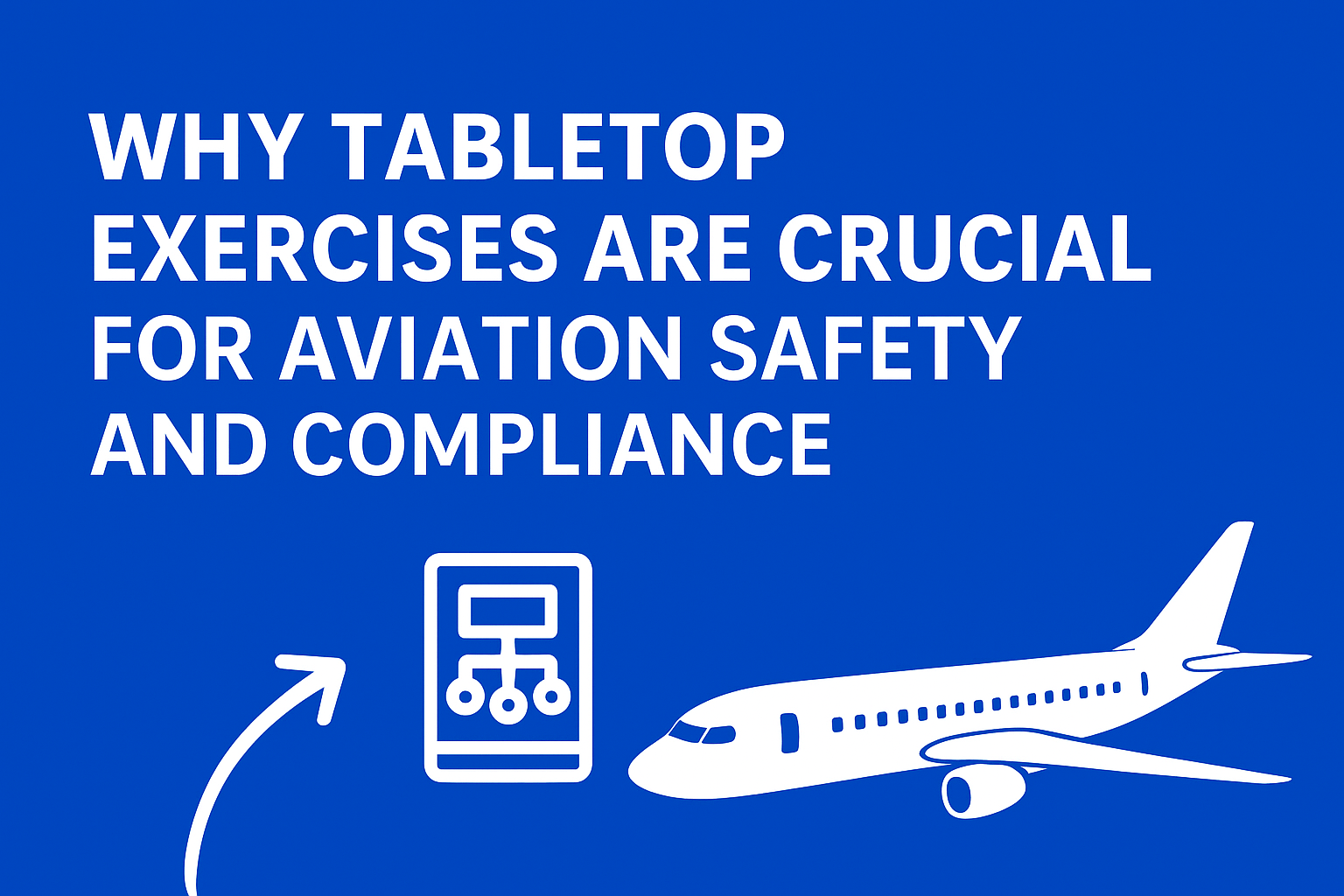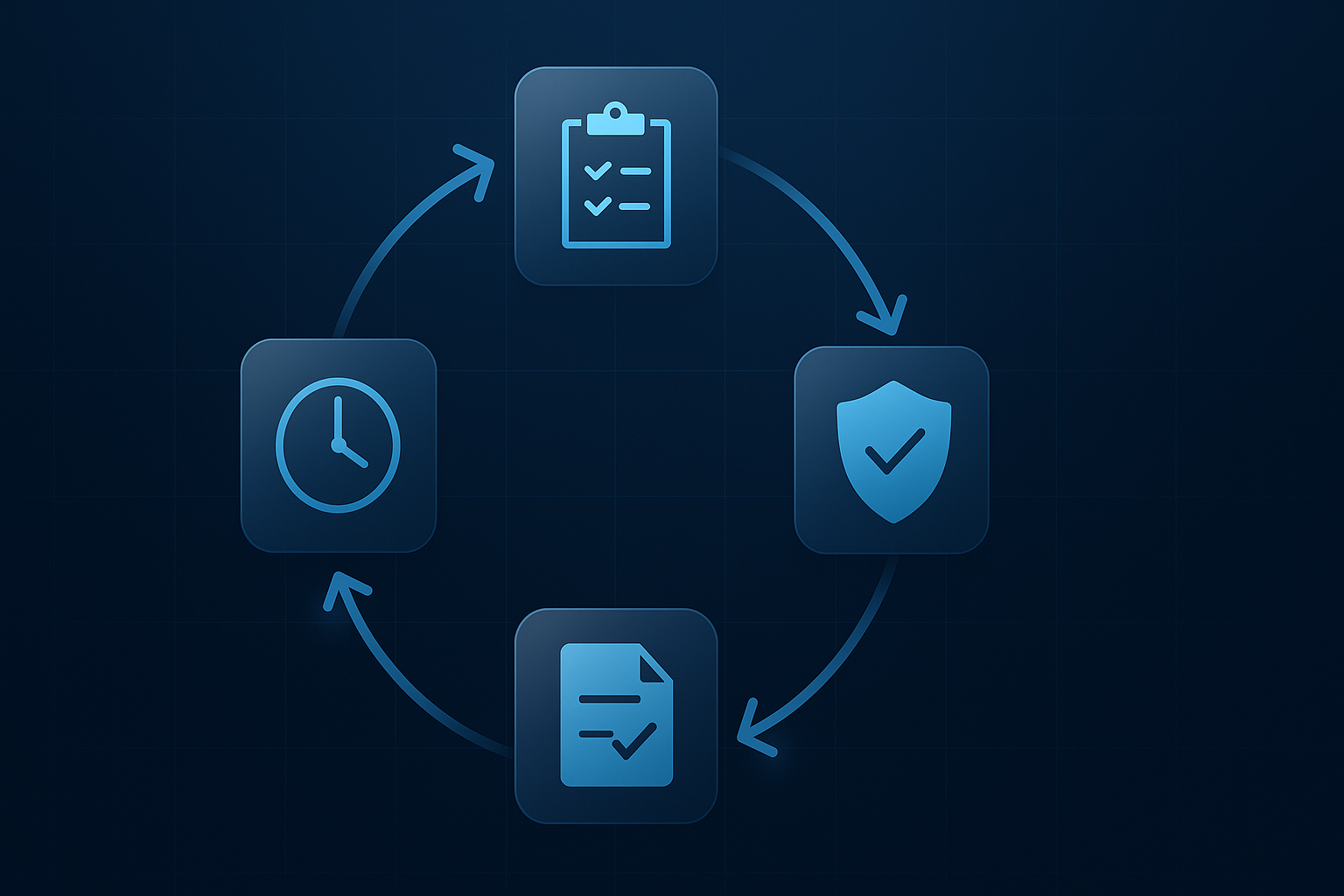Aviation Safety in 2025: Why Tabletops Matter More Than Ever
Aviation is the most highly regulated industry in the world—and it's necessary. Millions of passengers and countless flights a day rely solely on airports, airlines, and service providers in a coordinated, secure, and safe environment.
Next year, there will be more compliance requirements. All commercial Part 121 operators will have to adapt their Safety Management System (SMS) to the FAA’s enhanced Part 5 regulation, by no later than May 28, 2025. Meanwhile, airports will continue to need to prove conformity to TSA Part 1542 security requirements and FAA Part 139 Airport Emergency Plan (AEP) requirements.
The leader test isn't so much about being in compliance, though, but about showing—through evidence—team's readiness. That's where the tabletop exercises (TTXs) can be used.
Regulatory Requirements for Tabletop Exercises
TSA Security Programs – Part 1542
49 CFR Part 1542 airports need to have a TSA-approved Airport Security Program (ASP). An approved program has specified procedures in access control, screening, and incident response. Since the regulation does not make any mention of the use of specific tabletop requirements, TSA inspections and security directives mostly call for operators to demonstrate how their ASP incorporates the AEP. TTXs are still the best means of testing such incorporations—through the simulation of incidents like illegal access, inside compromise, or cyber disruptions.
FAA Operating Requirements – Part 139 (Airport Emergency Plan)
FAA should have certified airports owned by an Airport Emergency Plan (AEP) in accordance with 14 CFR Part 139.325. Any parties interested shall review the AEP at least every year, and the AEP shall be tested in a full-scale exercise at least once in 36 months in Class I airports.
FAA regulations mandate conducting tabletop and partial exercises in the intervening time period between the triennial exercises. These keep the cycle going, keep the active interfaces between the agencies (ARFF, airlines, police, EMS) in a ready state, and record lessons learned at the less formal events prior to the large exercise. Examples:
- In order to support a runway incursion drill between tower, ARFF, and operations.
- Traveling over a spill of dangerous materials at a service station.
- Mass casualty exercise after simulating the crash of a plane.
In all situations, a tabletop facilitates mutual understanding without interrupting business as usual.
FAA Safety Management System – Part 5 (Effective 2025)
The new Part 5 rule, finalized in 2024, mandates:
Part 121 operators in compliance by May 28, 2025
Part 135 operators and §91.147 air tour LOA holders by May 28, 2027 Part 5 doesn’t need an “annual SMS tabletop,” but it must have continual safety assurance and record-keeping of the identifying and controlling of hazards process. Annual tabletops are a best practice common among most operators, however, in the renewal of SMS components such as hazard reporting, safety risk management, and safety communication. Twice-yearly meetings double as evidence during FAA audits and regular internal review.
Why Tabletops Offer Unique Value
Unlike costly, complicated, and disruptive live exercises, tabletop exercises are low-risk, discussion-based exercises, but they reveal key planning and coordination vulnerabilities.
Key advantages are:
Audit-compliant conformity: Tabletops produces sign-in cards, injections, and After-Action Reports that are TSA Part 1542, FAA Part 139, and SMS documentation compliant.
Unveiling hidden dangers: An organized tabletop will generally uncover previously overlooked information, like old contact rosters or unclear points of handoff between agencies.
Interagency coordination: Airports comprise an airport community of airlines, TSA, FAA, ARFF, law enforcement, medical units, and mutual aid. Tabletops are where all these stakeholders act together before a real incident that obliges them to act together.
Continuous improvement for SMS: Findings from the tabletop can be directly fed to the SMS's safety assurance cycle—closing the loop from compliant to proactive for safety.
Aviation Tabletop Scenarios: Some Examples
- Some common and high-probability flying tabletop scenarios are:
- Runway excursion response: ATC, ARFF, and airline operations coordination.
- Cyberattack on airport systems: FIDS or loss of access control—TSA and IT security coordination.
- Spill of the Fuel Farm: Hazardous Materials Procedure and Environmental Reporting
- Terminal evacuation: Interdisciplinary coordination of security, law enforcement, and passenger service
- Mass casualty drill-lite: Coordination with the EMS and local hospitals but without physical assets mobilization.
Each of these scenarios can be made more or less complex to be of training value to both frontline workers and executive decision-makers.
Looking Ahead: Compliance and Resilience
With the FAA’s SMS rollout coming in 2025, airline executives have a decision to make:
Is the goal to satisfy the letter of the law—or to construct a stress-resilient organization that excels in adversity?
Tabletops are the compromise between the two. They tick boxes of compliance, but more importantly, they instill trust in people and in systems. They foster a common safety culture where everyone knows their job and trusts the other guy will do his.
How Opsbook assists Aviation Leaders
With Opsbook, it is easier than ever to hold successful tabletop exercises. Our platform provides:
Articulated AI-based aviation scenarios, according to TSA Part 1542, FAA Part 139, and SMS regulations.
Quick deployment—install a tabletop in just minutes with pre-configured injects and scenario guides.
Automated reporting—After-Action Reports, Improvement Plans, and compliance documentation produced in real-time
SMS integration—findings and lessons learned can be directly mapped against safety assurance and safety promotion elements. If your airport, airline, or aviation business wants to stay compliant and resilient, it's time to update your procedures. Try Opsbook today and see just how simple it is to enhance aviation safety with better tabletop exercises






